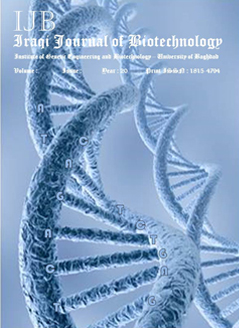Association of Glutathione S-Transferase (GSTM1, T1) Gene Polymorphisms with Type 2 Diabetes Mellitus (T2DM) in the Iraqi Patients
Abstract
Diabetes mellitus is associated with an increased production of reactive oxygen species (ROS) and a reduction in antioxidant defense. The oxidative stress becomes evident as a result of accumulation of ROS in conditions of inflammation and Type 2 diabetes mellitus (T2DM). The genes involved in redox balance, which determines the susceptibility to T2DM remain unclear. In humans, the glutathione S-transferase (GST) family comprises several classes of GST isozymes, the polymorphic variants of GSTM1, T1 genes result in decreased or loss of enzyme activity. Aims: The present study evaluated the effect of genetic polymorphisms of the GST gene family on the risk of developing T2DM in the Iraqi patients. GSTM1, T1 polymorphisms were genotyped in 25 T2DM patients and 25 healthy controls from Iraq to analyze their association with T2DM susceptibility. Materials and Methods: Analysis of GSTM1 and GSTT1 gene polymorphisms was performed by multiplex polymerase chain reaction (PCR) .There was significant association in the GSTM1 gene polymorphism and Type-2 Diabetes Mellitus (P<0.05). Moreover, significant relationship was found between the polymorphism of GSTT1 genes and higher risk of Type-2 Diabetes Mellitus among Iraqi subjects (P<0.05).


